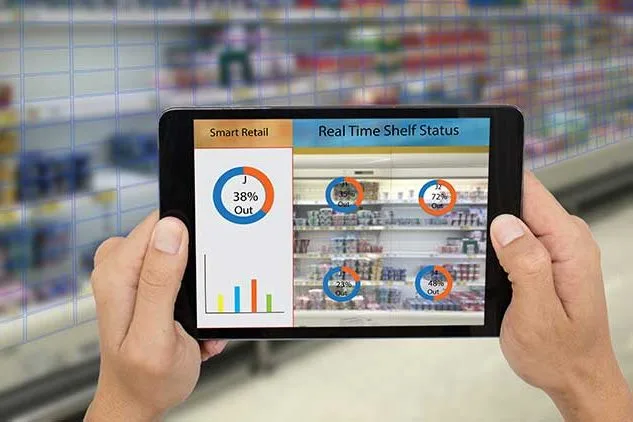5 Advantages of Business Intelligence

As customers’ expectations get more nuanced, the need for customer data is growing. But with lots of moving parts and pieces to omnichannel operations, standard data analytics methods are no longer enough. Not only can they be agonizingly slow, but they can also lead to mistakes.
Fortunately, newer technology like Business Intelligence (BI) solutions can remedy these issues by enabling us to extract every last drop of value from our customer data — and do so quickly.
Here, we’ll look at 5 ways BI solutions help retail and eCommerce businesses improve their order management, inventory management, and fulfillment processes.
Eliminate “Out of Stock” Scenarios
Keeping customers happy is difficult, especially when they’re ordering products online and having it shipped to their doorstep. Not just because they can’t try on items before they arrive, but because they still run into out of stock labels on their preferred products and sizes.
BI solutions enable you to accurately stock each warehouse and storefront for customer demand, by showing you which products are popular, where they’re in high demand, and how many were purchased recently. This helps you satisfy customers in two ways:
- By minimizing the chance that the product they want will be listed as “out of stock”
- And by decreasing back orders and slow fulfillment cycles
Optimize Order Fulfillment
Customers are impatient. They click a “buy now” button, and they want the product on their doorstep, ASAP. And while most customers are realistic enough to understand that shipping takes time (thankfully), they can quickly become frustrated if their order takes more than a day or two to arrive.
By showing you where a product’s demand is, business Intelligence solutions enable you to place inventory across your organization for faster shipping. They can also deliver insights on the best fulfillment method to keep customers happy. (Sometimes, it’s just faster for a customer to drive over to one of your brick-and-mortar stores to pick up their order than it is for you to deliver to their home.) This means less waiting for orders, and by extension, generally happier customers.
Enhance Customer Experience
One of the most taxing expectations for retail and eCommerce businesses to meet is that of the customer experience. Shoppers want to feel valued every step of the way, and they want personalized interactions. They just don’t want it to be creepy.
But since intuitively knowing exactly what customers want is impossible, having a business intelligence solution is valuable. With it, you can discover what your customers’ pain points are and come up with ways to alleviate them. For example, if your customers are consistently frustrated with long order cycles, you can look into your inventory management and logistics operations to see where improvements can be made.
Minimize Overstock
While your customers don’t want to deal with backorders and “out of stock” products, you also can’t afford to flood your warehouses with new items. If you do, you could end up stuck with a lot of overstock at the end of a season. And that means lost revenue.
Solid business intelligence solutions fix this by accurately estimating how much of a product you need to stock, based on past customer behavior and trends. This means you can more easily find the sweet spot between out-of-stock and overstock. Everyone wins.
Improve Customer Support
Customer support is a major factor in earning and keeping customer loyalty. Your customers rely on your support team to solve problems, answer questions, and make certain processes possible. And they expect your representatives to provide a positive experience as well — which arguably is difficult to do.
BI solutions simplify this process by showing you how customer interactions are going. They show you which channels customers use frequently to connect with your customer care team, and they can highlight your current customer satisfaction levels. This makes it possible for you to tweak your customer support processes to maintain a positive brand perception.
The truth is, it isn’t enough to collect customer data and comb through it manually. Not only do you run the risk of missing out on valuable insights, but it can take a long time to extract those insights. On the flip side, by using a business intelligence solution to analyze, interpret, and report on your data, you can drastically improve your omnichannel operations from end-to-end.
